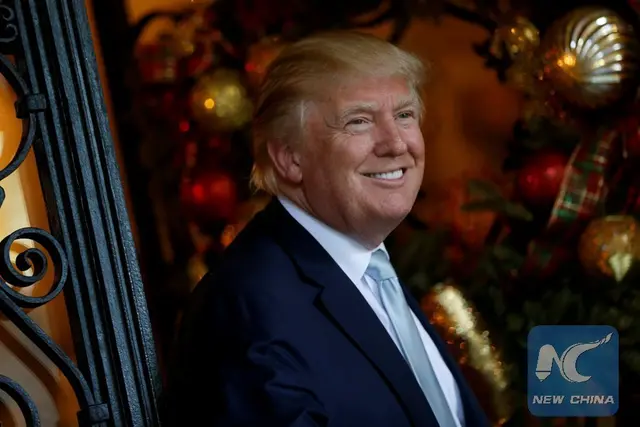U.S. President-elect Donald Trump has been threatening higher taxes for U.S. companies shipping jobs overseas, but experts said there are better strategies for saving American jobs.
The news comes not long after Trump was elected by mainly working class Americans who've been struggling to make ends meet in an economy that has not fully recovered since the 2008 economic crash.
The brash businessman earlier this month threatened to hit auto makers with heavy import taxes on cars built abroad, blasting U.S. car giant General Motors (MG) for assembling some of its vehicles in Mexico.
Though GM stated that it has no plans to change its plan, its rival Ford earlier this month announced the cancellation of a 1.6 billion U.S. dollar factory in Mexico while vowing to use some of those funds to broaden production in the U.S. state of Michigan.
Trump also recently took to social media to threaten Toyota with border taxes if the world's largest car maker goes ahead with plans to build a factory in Mexico that would produce cars for the U.S. market.
But some experts said a better strategy would be to offer tax incentives, rather than punishing companies.
The answer to encouraging companies to stay in the U.S. is not border taxes but general corporate tax reform, Aparna Mathur, resident scholar at the American Enterprise Institute, told Xinhua.
Taxes play a big role in companies' decisions about where to invest. If the U.S. corporate tax rate is made more competitive, then companies are much more likely to stay on in the U.S., Mathur said.
In addition, it is also inefficient to deal with companies separately to encourage or force them to operate in the U.S., she said, noting Trump's targeting of specific companies such as Carrier and General Motors.
Having a common corporate tax policy will enable companies to make the best decisions for themselves, she said.
Indeed, Trump has talked about a 15 percent corporate tax rate and House Republicans have called for a 20 percent rate -- a sharp drop from the top rate of around 39 percent, one of the world's highest.
Either of these cuts would be significant enough to encourage companies to stay in the U.S. if taxes were their biggest criterion for locating overseas, she said.
Some experts have said the issue is more complex than it seems. While many U.S. manufacturing jobs have left the country, many Americans these days do not have the skills that manufacturers need, experts said.
The problem is not so much the availability of more cost effective labor abroad but the lack of skilled workers in the United States, Mathur said.
So it's not just the cheap labor that's drawing away companies to other countries but the fact that the U.S. doesn't have the skilled workers that employers need to work in certain jobs, she said.
Manufacturers have 322,000 job openings and no workers to fill them in the United States, Mathur said. That's because the low skilled jobs have been automated and the high skilled workers are either not interested in manufacturing jobs or are not interested in acquiring the skills that employers want.
Experts said the question remains whether Trump can deliver on job creation while at the same time avoiding protectionist policies that may, in the long run, do more harm than good.
Diane Swonk, a veteran independent economist, told Xinhua that the question is whether Trump can deliver and avoid enacting a series of protectionist executive orders, which given his Twitter feed seems improbable, she said, noting the myriad messages the president-elect has been putting out on social media.
At the same time the Republicans in the House of Representatives are pushing back on delivering infrastructure spending, Swonk said.
Another issue is that workers everywhere are being replaced by automation.
Trump recently cut a deal with U.S. manufacturer Carrier to keep 1,000 jobs in U.S. boarders, but many jobs remaining in the United States are, in the long run, likely to become automated.
So the key to helping American workers is not trying to stop these jobs from going overseas but instead helping workers acquire new skills so that they can work with new technologies and retain their jobs, Mathur said.
 简体中文
简体中文

